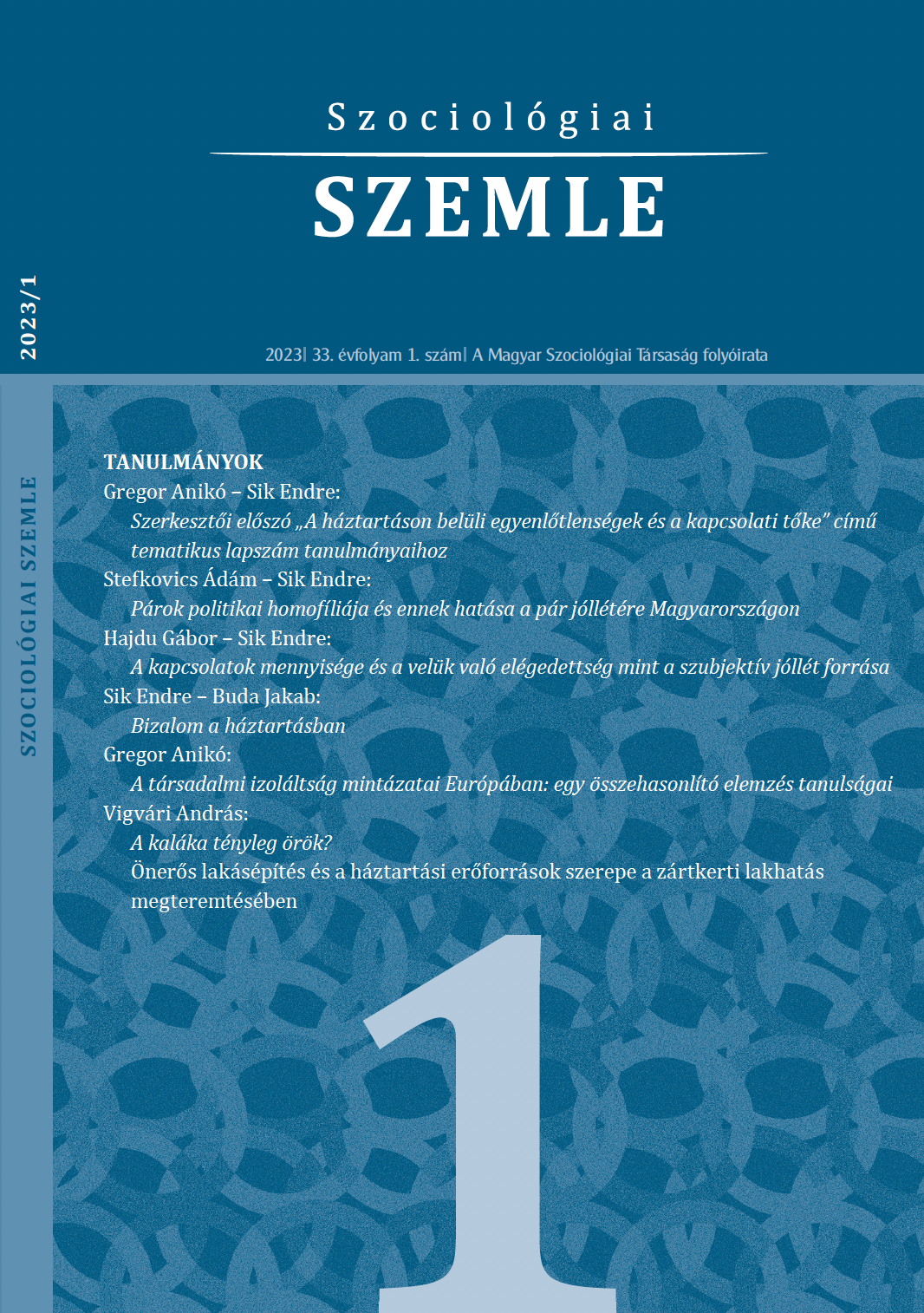Trust in the Household
Abstract
The unit of our model is the household and all its members. In the course of the analysis we combine the characteristics of individuals and their relations embedded into the context of the household as an entity. Our question is as follows: How are the level and the inequality of trust related to the main characteristics of the household members, to the various inequalities among them, within the household?
We constructed a household-level data from the EU-SILC 2015 (4010 households with two to seven members above 15). The two dependent variables were the level of and the inequality of the combination of generalized and institutional trust, the former defined as the average, the latter as the deviation of all household members.
We found that the higher level of trust is associated with higher social status (better living environment, better financial situation, higher level of education and more friendship ties) and higher density of women in the household. Among households where making ends meet was a major problem (living in bad housing condition in inferior neighborhood and the presence of household member(s) who need care) the level of trust was lower.
The inequality of trust was lower in households with higher density of women and friendship ties. Except the level of education all other forms of intra-household inequalities were closely associated with trust inequality. There seems to be an „inequality package” which reinforce multiple forms of inequalities, including trust.





